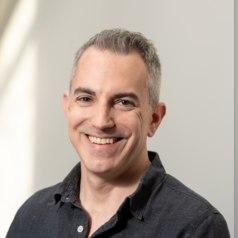|
Australians have long been wary of China’s rise and interference in our domestic affairs. A new poll shows many are now increasingly worried about US interference too.
Just over half of respondents in the poll, conducted by the Australia-China Relations Institute at the University of Technology Sydney, said they were concerned about US interference in Australia. This is a jump of nearly 20 points since the poll was first conducted in 2021.
Wariness about China remains, writes Elena Collinson, one of the report’s authors. Two-thirds of Australians see China as a security concern, and 64% said they mistrust the Chinese government. Yet these attitudes have softened in recent years.
The findings indicate that while Australians have become accustomed to a complex and often tense relationship with China, they are navigating new waters with the US. For the first time, many now see the US as both an ally and a source of pressure.
|

|
Justin Bergman
International Affairs Editor
|
|

Elena Collinson, University of Technology Sydney
More than half of respondents in a new survey said they were concerned about US interference in Australia, a jump of nearly 20 points since 2021.
|

Anthony Linton, University of Sydney
The odds of developing an asbestos-related disease from any exposure in this scenario are very low.
|

Toby Murray, The University of Melbourne
Anthropic says its Claude Code tool was used in a sophisticated, automated campaign to steal sensitive information.
|

Stan Karanasios, The University of Queensland
We’ve been warned of a looming AI ‘jobpocalypse’ for years. But many Australian businesses are still figuring out how to make the technology useful.
|

Michelle Grattan, University of Canberra
While Sussan Ley’s leadership remains under pressure, she isn’t giving up yet.
|

Asma Aziz, Edith Cowan University
The main way we show energy use is through “primary energy”. But this metric conceals the truly enormous waste of the energy in fossil fuels.
|

Danilo Urzedo, The University of Western Australia; Oliver Tester, Curtin University; Stephen van Leeuwen, The University of Western Australia
The UN climate conference in the Brazilian Amazon marks an unprecedented effort to elevate Indigenous concerns in negotiating rooms and on the streets.
|

Raymond Evans, Griffith University
Australian history has often been written from a southern perspective. But a history of the tropical North sheds light on ‘truth-telling’ and questions of race.
|

Sarah-Kay Coulter, The University of Melbourne
Current citizenship laws have a narrow concept of nationhood and fail to acknowledge Indigenous ways of understanding belonging, identity and place.
|

Elliott Logan, Monash University
Vince Gilligan, who also made Breaking Bad, says he didn’t intend to make Plur1bus about AI – yet the links are undeniable.
|
Politics + Society
|
-
Michelle Burgis-Kasthala, La Trobe University
A UN-backed resolution is crucial to the peace plan moving ahead, but questions remain about the finer details.
-
James Gardiner, Western Sydney University; Lizzie Maughan, University of South Australia
Federal laws allow religious schools to discriminate against LGBTQIA+ people. New research shows religious and sexuality diverse teens fall through the cracks.
|
|
Health + Medicine
|
-
Carolyn Ee, Flinders University; Western Sydney University; Amanda Vincent, Monash University
Women can go into menopause after cancer treatment or surgery. The timing and severity of symptoms can differ from natural menopause.
|
|
Business + Economy
|
-
Natasha Heap, University of Southern Queensland
A former airline pilot turned safety researcher explains the shocking lack of real-world testing to keep women safe in the air and on our roads.
|
|
Arts + Culture
|
-
Sam Whiting, RMIT University; Megan Sharp, The University of Melbourne
When Amyl and the Sniffers’ show was cancelled on Friday night, they placed $35,000 across the bars of seven prominent grassroots music venues around Melbourne.
-
Rachel Iampolski, RMIT University
On Friday, thousands packed into Federation Square for an Amyl and the Sniffers show. Within minutes, the Melbourne gig was cancelled over crowd crush fears.
-
Ruari Elkington, Queensland University of Technology
The pope shared his four favourite films, and spoke to Hollywood heavyweights about why cinemagoing matters so much in the world today.
|
|
Books + Ideas
|
-
Caitlin Macdonald, University of Sydney
Pip Finkemeyer’s tech world novel, One Story, is interested in power and performance. It reveals how violence can hide behind language – and the performance of care.
|
|
|
|
|
In defence of Treaty
"I applaud The Conversation’s commitment to representing diverse opinions. In this case, I feel Your Say, November 17 oversteps the mark. The link drawn between giving minorities a voice and the unravelling of democracy is not well founded. Society is not a zero-sum game, and I feel detractors of Treaty often fail to acknowledge the very real benefits that access to Traditional Owner knowledge offers all modern Australians. Finally, let’s not forget that a mere 200 years ago the population percentages cited looked markedly different and the causes of that shift were not endemic to Australia."
Ellery Durrant
Testing for drugs
"Simply using a test that shows the presence of a drug to disqualify a driver is unethical and does not prove impairment. If the police want to use such tests to charge drivers with use, I think that would be fair enough. But to take someone’s driving licence from them without a proper test for impairment is a step too far."
Phil Murray, Devonport
You’re on mute
"Have delegates travelling to the United Nations Global Summit on Climate Change heard of Teams meetings?"
Alan Robertson
We'd love to hear from you. You can email us with your thoughts on our stories and each day we'll publish an edited selection.
|
| |
|
|
|
The Conversation AU/NZ
Melbourne Victoria, Australia
•
Full Time
|

|
|
|
|
| |
| |

|
| |
| |
| |
|
|